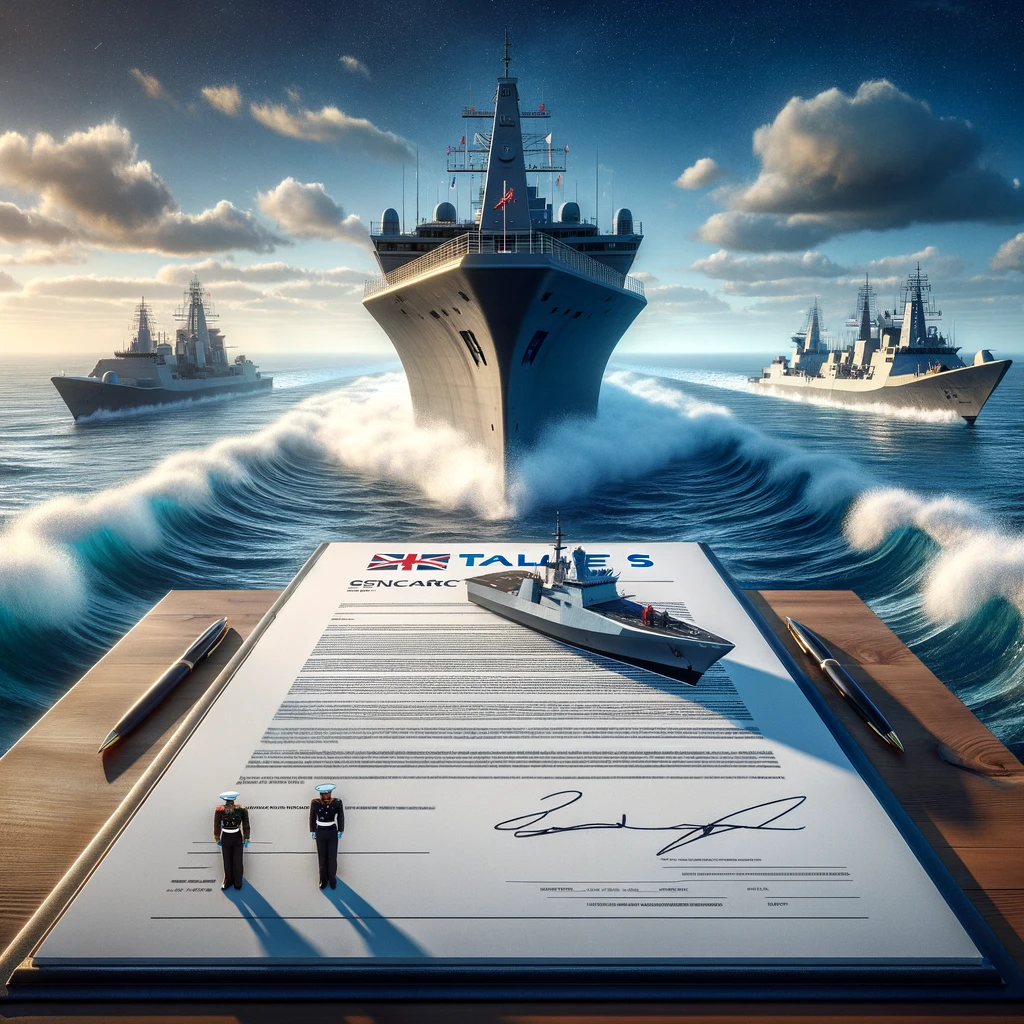In response to the increasing global instability and the demand for the Royal Navy to extend its operational presence, the UK Ministry of Defence has awarded a £1.8 billion, 15-year contract to Thales. The aim of this contract, known as the Maritime Sensor Enhancement Team (MSET), is to enhance the availability and resilience of Royal Navy ships. Thales will employ cutting-edge technology, including artificial intelligence (AI) innovations, to predict and address issues, ultimately ensuring that Royal Navy vessels spend more days at sea.
AI-Powered predictive maintenance
Thales will utilize AI and data management to revolutionize equipment availability for the Royal Navy. Rather than reacting to problems as they arise, the focus will be on predicting and preventing them. This proactive approach is expected to result in an average reduction of 100 days per repair, significantly reducing downtime for naval vessels.
The MSET contract not only strengthens the Royal Navy’s operational capabilities but also bolsters the UK job market. Over 450 highly skilled engineering, IT, and support jobs will be created, along with hundreds of apprenticeship and training opportunities throughout the country. This investment in local communities and the supply chain will support an additional 1,200 staff members.
Naval transition and complex platforms
During the 15-year contract, the Royal Navy is set to undergo a significant transition, welcoming new platforms like the Type 26, Type 31, and Dreadnought submarines, as well as autonomous systems. Thales’ scalable service model, MSET, will provide stability and comprehensive support during this complex period.
Thales will invest in new dockland facilities, AI technology, data analysis tools, and skill development to bolster the Royal Navy’s resilience. These improvements will extend to naval bases in HMNB Devonport, Faslane, Portsmouth, and Bahrain, where advanced test and repair capabilities will be established, enabling direct support to the Royal Navy.
Alex Cresswell, Chairman and CEO of Thales in the UK, expressed their enthusiasm for the contract, emphasizing the century-long partnership between Thales and the Royal Navy. This partnership aims to defend the UK and maintain critical sea lanes. The contract’s focus on AI, data analysis, and improved dockland facilities will contribute to the Royal Navy’s operational efficiency.
The MSET contract also plays a vital role in preparing for AUKUS, a landmark security and defense partnership between Australia, the US, and the UK. Data-driven decision-making will enhance the availability and resilience of the Royal Navy, aligning it with international security initiatives.
Thales’s diverse portfolio coverage
The contract covers a wide array of naval platforms, including T23, T45, Sandown, Hunts, A, V, and T Class Submarines. Additionally, it supports 18 equipment types and around 10,000 Line Replaceable Units, ensuring a comprehensive approach to naval maintenance and readiness.
Thales’ investment in emerging technologies such as AI, virtual reality, and Big Data will create a more proactive and predictive maintenance regime. This forward-looking approach will ensure that the Royal Navy remains operationally ready in an ever-evolving global landscape.
Enhanced waterfront facilities
Once the enhanced MSET service is established, it will extend its support to new platforms, including the Maritime Mine Counter Measures (MMCM) program, Type 26, Type 31, and Dreadnought submarines. These platforms will benefit from the improved waterfront premises, further increasing the Royal Navy’s operational capabilities.
Thales’ £1.8 billion MSET contract with the UK Ministry of Defence represents a significant advancement in naval maintenance and readiness. Through the strategic use of AI, data analysis, and infrastructure improvements, the Royal Navy will enhance its operational resilience and continue its vital role in safeguarding the UK’s interests and critical sea lanes. This landmark partnership between Thales and the Royal Navy is set to create jobs, support local communities, and prepare the Navy for the challenges of an increasingly unstable world, including its role in the AUKUS partnership.


